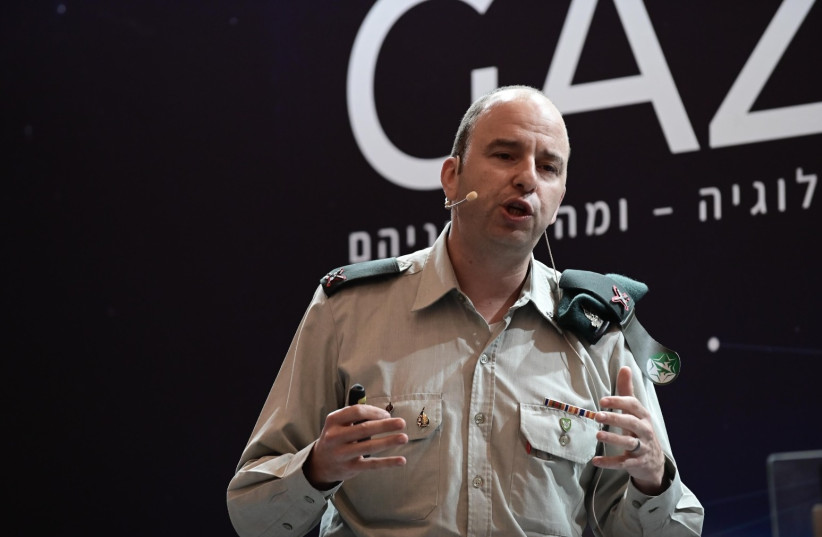IDF Intelligence Analysis Chief Brig.-Gen. Amit Saar, considered by some the official most responsible for not foreseeing the October 7 invasion by Hamas, announced on Thursday that he was resigning immediately due to a cancerous growth.
According to the IDF, Saar started to feel seriously ill a few weeks ago. He was finally diagnosed with the cancer recently and then updated the military that he must resign to undergo treatment.
In mid-March, the intelligence analysis chief told a closed military intelligence conference that he would resign from his post upon publication of the IDF’s impending probe of the October 7 failures, which is set for June.
Saar is the most senior Israeli official to date to resign, although IDF sources said that he was due to finish his role anyway over the summer.
Former IDF intelligence analysis chief Itai Brun, who had the role from 2011-2015, has replaced Saar on an emergency and temporary basis for the coming months.

Who will take on the role permanently?
Later Thursday, the IDF announced that Col. “A” (not to be confused with a fired Col. A from the Southern Command) has been given the permanent appointment by Halevi, but will only fully take on the role after some months of transitioning under Brun.
In some of his past roles, A was in charge of assessing intelligence related to Iran and the broader Middle East, and most recently he had a high-level command in Unit 8200.
A permanent replacement will be controversial because some political officials will oppose the current IDF high command choosing such a key replacement when some of them, including IDF Chief of Staff Lt.-Gen. Herzi Halevi, are themselves expected to resign sometime this year.
Previously, the top intelligence officer in the Southern Command, Col. “A,” as well as a mid-level IDF intelligence major, resigned in connection with October 7. The IDF Col. also resigned due to an inappropriate romantic relationship with a subordinate.
At higher levels, Halevi, IDF Intelligence Chief Maj.-Gen. Aharon Haliva and Shin Bet Chief Ronen Bar all previously hinted several months ago that they would resign but never gave a time frame. Since then, some have speculated that one or more of them may try to stay on given that Prime Minister Benjamin Netanyahu is also pushing to stay on.
Defense Minister Yoav Gallant previously went further than Netanyahu, who denied any responsibility for October 7, by taking some responsibility but not hinting at whether he would resign.
Saar’s mid-March statement came only hours after IDF Brig.-Gen. Dan Goldfus called on the country’s leaders to be “worthy” of the many IDF soldiers’ sacrifices falling in battle.
Until October 7, Saar was considered a brilliant analyst who had correctly predicted various trends with Iran, Hezbollah, and Hamas.
He also sent Netanyahu four letters warning that Israel’s adversaries might more aggressively attack Israel due to the defense establishment being weakened by the judicial overhaul debate initiated by the prime minister.
Netanyahu ignored most of the letters; the fourth letter was due to be sent to him shortly after October 7.
Saar’s announcement and the June probe results could set off a wider round of resignations.
